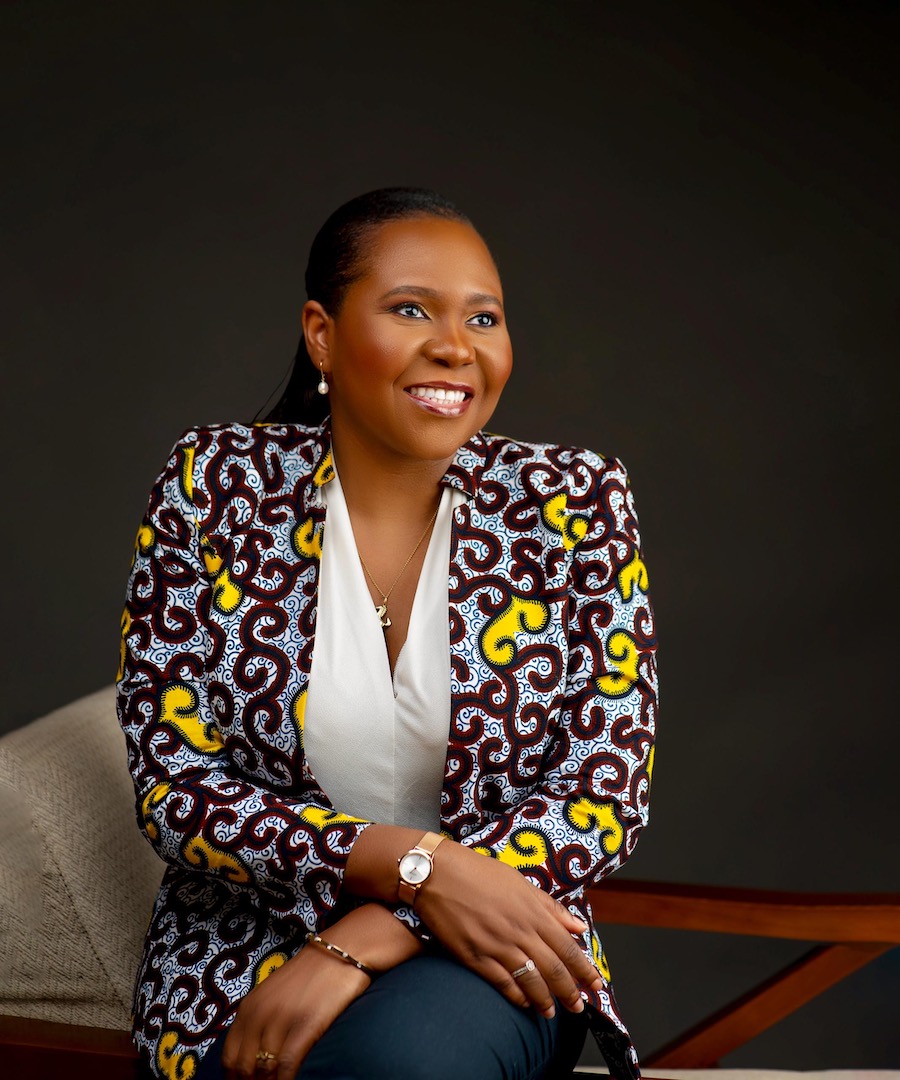Navigating motherhood as a woman is no small feat. The demands of work, family, and personal growth often pull women in different directions, making it feel like there’s never enough time in the day. Yet, many women continue to break barriers, proving that it’s possible to build a fulfilling career while being present for their families. But how do they do it? What sacrifices, support systems, and mindset shifts make it all work?
I chatted with Morayo, the Director of Policy, West Africa at Mastercard, who is both a dedicated career woman and mother. We talked about the realities of balancing work and family life. She shares her journey, the challenges she faces, and the lessons she learnt along the way.
What was your initial reaction when you first found out you were going to be a mom, especially as a career woman?
Gratitude was my first reaction and then i began to think of how I would balance this new me, with other parts of me. I wasn’t anxious or anything but there was a lot of thought around how will this work out because at the time I was pregnant with my first child. I was working as the technical assistant to the CEO of a very busy organisation so that was quite a tasking job that I had. Even though I enjoyed my work, it was a big concern for me and I began to think how I would shed some of my work load in order to take on this new responsibility.But I said to myself, “we will take it one day at a time.” I refused to overthink it, instead I made up my mind to make decisions as the need arose and not get overwhelmed by trying to have it all figured out at once.

How did you prepare mentally, emotionally, and professionally for motherhood?
To be honest, no amount of preparation feels like enough. I’m naturally a planner, so when it came to the baby’s arrival, I planned ahead. Getting the home ready was the easy part, but some things are simply beyond planning, and I had to learn to let go of control.
On the professional side, I was fortunate to have a great relationship with my boss, who told me to take as much time as I needed. I worked up until just a few days before delivery, then went on maternity leave. My job was also flexible; after my three-month leave, I could work remotely for a while, which helped me adjust to a new routine. That said, motherhood is a constant evolution, just when you think you’ve adjusted, something new comes up. But having that flexibility and understanding from my employer was a real blessing.
What were your biggest fears or concerns about balancing both roles?
To be honest, I realised early that you can never be fully prepared. Google is your friend, but sometimes it could create more anxiety. So, I entered it knowing that I would face challenges unique to my own experience. For example, my second child is eight months old and still doesn’t sleep through the night. Whereas some other kids started sleeping through the night at 6 months.
I read books, listened to stories from other mothers, and prayed about how I wanted things to go. Did everything go as I envisioned? No. But am I grateful for how it’s all turned out so far? Absolutely.
What I will say is take each turn as it comes, don’t anticipate challenges, try to pace yourself. One thing I learnt is that your mindset is 70% of your journey. So if you keep telling yourself that this is going to be really hard, then that’s what you will get. I am not saying it’s going to be easy, but don’t anticipate the tough times, don’t anticipate the sleepless nights, don’t anticipate any thing that will steal your joy and make you anxious. I think I made peace with myself regarding my career that I may have to slow down if need be, because I am raising two great human beings.

What has been the hardest part of managing both responsibilities? Have you had moments that made you question if you can handle it all?
By nature, I tend to over-commit. I often take on more than I should both at work and in my personal life, because I genuinely believe I can handle it all. I find myself saying, “Don’t worry, I’ll get it done,” and then later wondering how I got myself into so much.
At one point, I was juggling daily work, family life, and multiple projects. I realised some of those projects weren’t essential, but since I had committed to it, I had to follow through. But the thing I am trying to do in terms of navigating this is also learning how to buy time back.
For instance, I got a driver for two weeks and the reason I got this driver was to be able to work on the projects on my commute to work. I don’t have time to do it while at home, and if I were driving, I wouldn’t be able to, so having someone drive me helped me use that time for some productive work on my projects
But I’ve also learned to forgive myself when I fall short of my own high standards. I’m learning to step back, let go of certain opportunities, and remind myself that saying no is okay. You can’t do everything, and that’s perfectly fine.
What are some practical ways you manage time effectively between work, family, and personal well-being?
When I was thinking of work life balance, two things came to mind , are we talking about a scale balance or are we talking about a ledger balance? If it’s a scale balance and you put something heavy on one side and then the other side goes higher, I don’t know that you can achieve work-life balance on that kind of scale. But if it’s a ledger, like an account balance, then some days you are debiting, and other days you are crediting. Over time, it balances out.
So, I would rather use an account ledger kind of scenario to consider work-life balance. Today, work may take 70% of my time, and I would have to manage the remaining 30% with my family. Another day, it is the other way round. The key is understanding what’s most important at any given moment and not dropping the ball on that. Every day is a negotiation of time, and you have to be flexible and realistic.
Do you think workplaces are truly supportive of working moms? If not, what needs to change?
This really depends on the workplace. In my experience, it comes down to the relationship and trust you build with your employer. If they trust you to deliver, no matter where or how you work, you will have more flexibility.
That said, organisations also need to put structures in place. For example, nursing mothers need private spaces to express milk, not bathrooms or cars. Some companies already provide daycare options, and that’s fantastic. Also, companies that offer substantial paternity leave, like three months, for example, recognise the role men play in childcare. That support lightens the load for women and enables them to pursue their career goals. Companies that do this stand out in a big way.

How can career women prepare for motherhood without feeling like they have to sacrifice their ambitions?
It really depends on your resources. If you have family or a solid support system, lean on them. I’ll share my own example: when my first child was just five months old, I had to travel for work. Between then and her first birthday, I had four international trips. I was able to do that because my husband and my mom stepped in.
I still had to pump and store milk during those trips, but knowing that my child was well cared for allowed me to focus.
If you don’t have that kind of support yet, then you might need to slow down and make a decision, perhaps slow down for a few years, focus on raising your children, and then return to your career later. There’s no one-size-fits-all.
What do you want career moms listening to takeaway from this conversation?
It’s not a race. Sometimes you need to slow down or even stop, and that’s okay. Forgive yourself in advance. We set such high expectations for ourselves, and when things don’t go according to plan, we can be hard on ourselves.
Remember, if you ever feel like you can’t handle it all, it’s okay to pause. I know women who took 10-year career breaks and came back stronger. If that’s where you are right now, embrace it. You’re not stopping for frivolous reasons, you’re stopping to raise the next generation, and that’s a calling in itself.
Thank you for sharing your experience with us.



No Comments